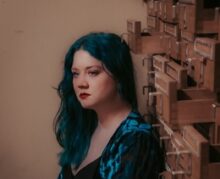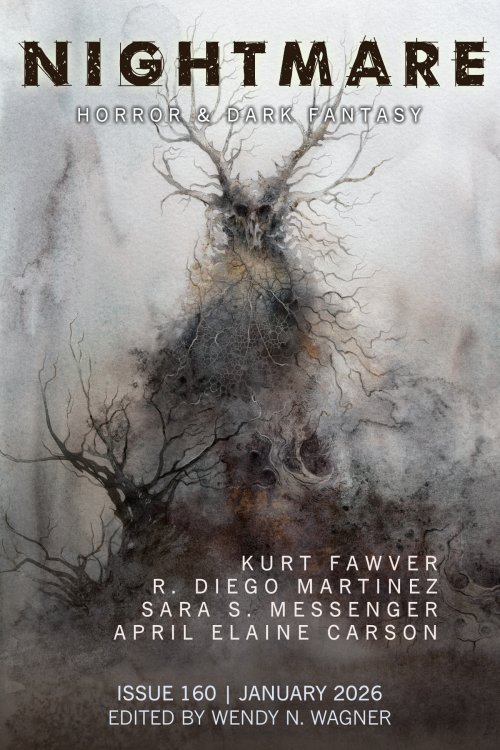It’s a quiet night at home. A woman watches a scary movie in a darkened room when a real-life killer appears. Screaming, she jumps from the couch, popcorn flying, and the chase begins. The mask-clad, knife-wielding killer pursues her as she makes her way to the front door—just to barrel past it and run straight up the stairs.
In another house, a family tries for a new start, moving into a suspiciously cheap home that’s been on the market for ages. Pictures fly from the walls; the youngest child plays with a new, creepy friend that no one else can see; strange noises echo at night, sounding like screams. Yet, they brush away all of these warnings.
In still another, a group of ghost hunters pull out everything in their arsenal—salt, wooden stakes, crucifixes—to defeat the angry ghost who just wants to be left alone, who wants to do ghostly things without these idiots bugging them with cameras.
These all-too-common scenarios in horror always beg the question: Why didn’t they just leave?
It’s a fair question. It even inspired an entire anthology, borrowing the same pointed question for its title, expected in spring 2024 from Cursed Morsels. There’s likely a plethora of answers. Perhaps they spent their last pennies on the house and have nowhere to go. Maybe they were so panicked they bolted up the stairs before they could logically think to try going out the front door.
But what happens if they can’t leave?
And by “can’t leave,” I mean: supernaturally. A fairly small subset of survival horror, seen more frequently in visual media, is one of true, utter, inescapable imprisonment with no hope of leaving, where the cast has stumbled upon some cursed place that simply won’t let them escape, will keep them right where they are until it’s done with them. Forests that somehow twist you back around to where you started, no matter how long you walk in a straight line. Wilderness that inexplicably makes your getaway plane explode, as in Yellowjackets, or a simple field of grass that taunts you with the proximity of the road while moving you around even as you stand still, as in Joe Hill and Stephen King’s “In the Tall Grass.” In these places, there is something monstrous, something hungry, and you can wear your toes to the bone, but you’ll never leave. You can’t.
This trope is pretty niche. There’s a lot of close-but-not-quite examples: Scott Smith’s classic The Ruins showcases a brutal, supernatural landscape, but the cast is actually surrounded by the gun-wielding citizens of the nearby village. The Overlook in The Shining induces madness in the Torrance family, but the real blockade is due to the massive blizzard. It’s rare to find a setting that truly, unrelentingly traps the characters due to its sentience or supernatural qualities, and not something exterior, such as an already isolated landscape like an island, severe weather, or even the characters’ own stubbornness.
Perhaps the trope is under-utilized because of its inherent bleakness: any setting which does not allow its victims any recourse for escape intrinsically results in their eventual deaths. Danny and Wendy can flee the terrors of the Overlook once they have a working Snowcat; those stuck on an island can craft a boat or be rescued; adventurers in the bowels of a cave can keep pressing forward until they find the light of day. When the supernatural presence isn’t the thing doing the trapping, there’s always a glimmer of hope. But if that force creates a barrier to exit, then hope is lost. There’s nothing to be done but wait for the inevitable.
Despite knowing the likely outcome, I find these supernatural trappings fascinating. Even once these characters figure out that there’s no hope of leaving, they still don’t give up—there’s some unwavering tenacity that remains. The audience knows where the story is heading while the characters try over and over again to survive. It’s like watching an inspiring train wreck.
Interestingly, almost every instance of this supernatural entrapment starts with willingness, with characters who actively choose to enter the trap, though they often don’t know or realize their mistake until it’s too late. It might be arrogance or denial, a belief that they are entitled to enter the woods, despite all the warning signs; in this case, the audience almost revels in the misfortune that befalls them. However, the horror can be amplified amidst the tragedy of their fate if the trap occurred due to someone trying to be a good Samaritan. In “In the Tall Grass,” a pair of siblings are lured into the grass by pitiful calls for help from a young child.
Once the cast is ensnared by the supernatural entity, they often lack one of the necessary traits to survive something terrible: knowledge. It’s cliche to call out the fear of the unknown, but that’s truly what’s terrifying in these situations. Something unexplainable is happening, something that defies any reasonable explanation. The compass won’t point due north, leading them in circles. Phones and technology have no signal or, worse, appear to be working, but the thing they reach is not who was called. They might have entered the woods with all the knowledge of survival training—how to scare away wild animals, how to navigate via the sun’s placement in the sky, how to suture and bandage wounds—but when you’re faced with something outside of reality, how can you overcome it? How could you possibly have any idea about it to know how to defeat it?
And yet, they always try. Sometimes the thing holding them releases them. Sometimes it does not. Sometimes they think they’ve left, but it comes back to claim them.
And even if the characters think they know, they are still often overcome. To know the unknowable is a route to madness. In Oculus, Kaylie has a solid plan. She’s studied the supernatural mirror and put in fail-safes and checkpoints. Yet, she underestimates it. The mirror still wins. The motives of these places or entities are never revealed, making the horror of it all the more terrifying in its seeming randomness.
We like to think there are logical rules that govern the world. If we simply understand those rules, we know what to expect. If we study survival skills, if we memorize all the plants that are edible and those that are poisonous, if we know how to use a compass and walk in a straight line, we’ll never get lost in the woods. But when the compass constantly spins, when our straight line becomes somehow curved, when we’ve lost control due to forces outside of our own imagination, that’s where the horror seeps in, long before the actual monsters arrive.








